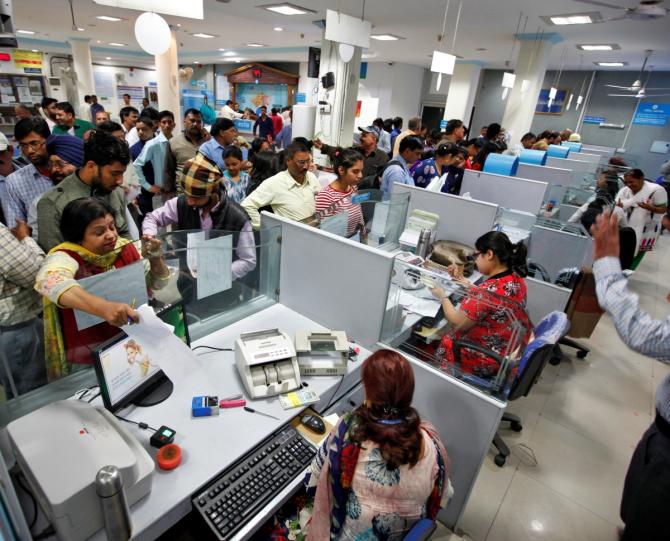'Self-declaration from the customer in case of no change in KYC information or change only in the address details may be obtained.'

The Reserve Bank of India has directed regulated entities to continue allowing transactions for individual 'low-risk' customers, while ensuring their Know Your Customer (KYC) details are updated by June 30, 2026 or within one year of falling due, whichever is later.
The decision comes as the regulator has observed a large pendency in periodic updation of KYC including in the accounts opened for credit of Direct Benefit Transfer under government schemes to facilitate credit of direct DBTs and/or scholarship amount and accounts opened under Pradhan Mantri Jan Dhan Yojana (PMJDY).
Earlier this week, during the meeting of the Financial Stability and Development Council, Finance Minister Nirmala Sitharaman exhorted the council to take proactive steps to ensure that citizens should have a seamless experience with respect to KYC processes across the financial sector.
She also asked the financial sector regulators to take necessary steps to reduce the unclaimed assets in the financial sector like banks deposits, dividends, shares, post office accounts, insurance and pension funds etc., and ensure expeditious and seamless refund of such assets to rightful owners.
RBI, now, has also allowed Business Correspondents to facilitate in the process of KYC updation.
Authorised Business Correspondents of the bank are also allowed to be utilised for activation of inoperative accounts.
'Self-declaration from the customer in case of no change in KYC information or change only in the address details may be obtained through an authorised BC of the bank,' RBI said in a notification.
'The bank shall enable its BC systems for recording these self-declarations and supporting documents thereof in electronic form in the bank's systems,' the RBI added.
"Banks have to grow their network of business correspondents. It will help in regular updation and simultaneously it will facilitate smooth KYC updation. Because of KYC being not updated from time to time, there has been a significant delay in DBTs, scholarships etc," said a banking official with a public sector bank.
On due notices on periodic KYC updation, RBI asked the regulated entities to intimate its customers, in advance, to update their KYC.
'Prior to the due date of periodic updation of KYC, the RE shall give at least three advance intimations, including at least one intimation by letter, at appropriate intervals to its customers through available communication options/channels for complying with the requirement of periodic updation of KYC,' RBI said.
Subsequent to the due date, the RE shall give at least three reminders, including at least one reminder by letter, at appropriate intervals, to such customers who have still not complied with the requirements, despite advance intimations.
The regulated entities are asked to expeditiously implement these guidelines and before January 1, 2026.
Further, the banks are advised to organise camps and launch intensive campaigns including special camps, focusing on periodic updation of KYC, especially in rural and semi urban branches and the branches having large pendency in periodic updation of KYC.
RBI has also asked banks to make available the facility of updation of KYC for activation of inoperative accounts and unclaimed deposits at all branches including non-home branches.
'Further, a bank shall endeavour to provide the facility of updation of KYC in such accounts and deposits through Video-Customer Identification Process (V-CIP),' it said.
"This is a time to time practice of the RBI to tighten the KYC norms so that customers get benefits of DBTs.
"Also, there has been a rise in inoperative accounts and banks have to bear the cost of those accounts.
"In addition, frauds have also increased, so regular updation of KYC is essential to keep a check on frauds," said a senior banking official at another State-owned bank.
Feature Presentation: Ashish Narsale/Rediff









